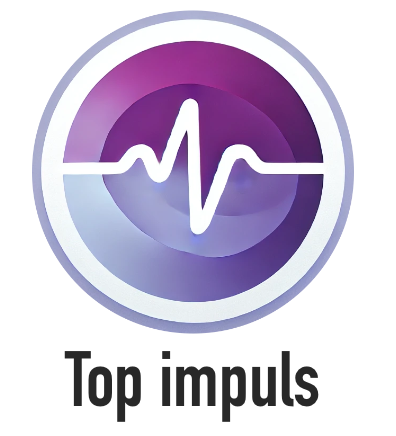De toepassing van kunstmatige intelligentie (AI) in de medische diagnostiek heeft de potentie om de gezondheidszorg ingrijpend te transformeren. Met verbeterde nauwkeurigheid, snelheid en efficiëntie in het opsporen van ziekten en de zorg voor patiënten, biedt AI oplossingen voor de uitdagingen waar het huidige medische systeem mee worstelt. Door middel van geavanceerde machine learning-algoritmen en predictieve analytische modellen, kan AI artsen en zorgverleners ondersteunen bij het stellen van accurate diagnoses, het vroegtijdig opsporen van aandoeningen en het optimaliseren van behandelplannen.
In de komende secties zullen we dieper ingaan op de revolutionaire rol van AI in de medische diagnostiek, waarbij we de evolutie van de technologie, de huidige implementatie in de gezondheidszorg en de belangrijkste voordelen voor zorgverleners belichten. We zullen ook een overzicht geven van hoe AI samenwerkt met traditionele diagnostische methoden, met voorbeelden uit de praktijk, en de toepassing van neural networks en deep learning in medische diagnose.
Key Takeaways
- AI biedt verbeterde nauwkeurigheid, snelheid en efficiëntie in medische diagnostiek
- Geavanceerde machine learning-algoritmen en predictieve analytics ondersteunen artsen bij diagnoses en behandeling
- AI integreert met traditionele diagnostische methoden voor optimale patiëntenzorg
- Neural networks en deep learning spelen een cruciale rol in medische diagnose
- AI-gestuurde beslissingsondersteunende systemen verbeteren klinische besluitvorming
Understanding AI’s Revolutionary Role in Healthcare Diagnostics
The healthcare industry has witnessed a remarkable transformation driven by the integration of artificial intelligence (AI) technology. AI-powered diagnostic tools have become an integral part of modern healthcare, revolutionizing the way medical professionals approach patient care.
Evolution of Medical AI Technology
Over the past decade, the advancements in machine learning and deep learning algorithms have paved the way for more accurate and efficient medical AI applications. From automated image analysis to natural language processing of electronic health records, AI has become a game-changer in the field of healthcare diagnostics.
Current Implementation in Healthcare Settings
Today, AI-powered diagnostic tools are being widely implemented in various healthcare settings, assisting healthcare providers in making more informed decisions. These innovative technologies are being used for tasks such as early disease detection, risk assessment, and personalized treatment recommendations, ultimately improving patient outcomes.
Key Benefits for Healthcare Providers
The integration of AI in healthcare diagnostics has brought about numerous benefits for healthcare providers. These include:
- Improved diagnostic accuracy and reduced errors
- Faster and more efficient data analysis
- Enhanced patient monitoring and personalized care
- Streamlined clinical workflows and increased productivity
As the healthcare industry continues to embrace the power of AI, the future of medical diagnostics looks brighter than ever, promising to deliver better patient outcomes and more efficient healthcare systems.
Machine Learning Algorithms in Medical Image Analysis
The integration of AI image recognition and medical imaging AI has revolutionized the field of healthcare diagnostics. One of the key advancements is the application of deep learning in radiology, where machine learning algorithms are enhancing the analysis and interpretation of medical images.
These sophisticated algorithms are trained on vast datasets of X-rays, MRIs, CT scans, and other imaging modalities, enabling them to detect subtle patterns and abnormalities that might be overlooked by the human eye. By automating the image analysis process, AI-powered medical imaging can provide more accurate and timely diagnoses, ultimately improving patient outcomes.
Some of the remarkable capabilities of machine learning in medical image analysis include:
- Improved detection of tumors, lesions, and other pathologies in various organs and tissues
- Enhanced interpretation of complex imaging data, such as identifying signs of cardiovascular disease or neurological disorders
- Streamlining the workflow for radiologists by automating routine tasks and freeing up time for more complex cases
As the field of medical imaging AI continues to advance, the potential for AI-driven image analysis to transform healthcare diagnostics is becoming increasingly evident. By leveraging the power of machine learning, healthcare professionals can make more informed decisions and provide better care for their patients.
Natural Language Processing for Patient Data Management
In the ever-evolving world of healthcare, natural language processing (NLP) has emerged as a powerful tool, revolutionizing the way patient data is managed and utilized. By harnessing the capabilities of AI-driven patient data analysis, healthcare providers can unlock a wealth of insights hidden within electronic health records, paving the way for more efficient and personalized care.
Processing Electronic Health Records
NLP algorithms can seamlessly navigate the complex and unstructured data found in electronic health records (EHRs), extracting valuable information that would otherwise be difficult to access. This automated process allows healthcare professionals to quickly identify key patient details, such as medical history, symptoms, and prescribed treatments, enabling them to make more informed decisions and deliver tailored care.
Automated Report Generation
One of the standout applications of NLP in healthcare is its ability to generate automated medical reporting. By analyzing clinical notes and other textual data, NLP systems can produce comprehensive, standardized reports that summarize a patient’s condition, test results, and recommended treatment plans. This not only saves time for healthcare providers but also ensures consistency and accuracy in medical documentation.
Clinical Documentation Improvement
- NLP-powered tools can identify gaps or inconsistencies in clinical documentation, providing real-time feedback to healthcare professionals.
- This streamlines the documentation process, reduces the risk of coding errors, and ultimately enhances the overall quality of patient records.
- By automating mundane tasks and freeing up clinicians’ time, NLP in healthcare enables a greater focus on patient-centric care and improved outcomes.
As the healthcare industry continues to embrace the transformative power of technology, the integration of NLP in healthcare will undoubtedly play a pivotal role in revolutionizing patient data management, driving better decision-making, and enhancing the overall quality of care.
Predictive Analytics for Early Disease Detection
In the realm of modern healthcare, AI-driven predictive analytics have emerged as a game-changer, enabling early detection of diseases and empowering healthcare providers to implement proactive interventions. By harnessing the power of machine learning algorithms, predictive healthcare models can analyze a wealth of patient data, including medical histories, genetic information, and lifestyle factors, to identify subtle patterns indicative of potential health issues.
This revolutionary approach to disease risk assessment allows for timely diagnosis and personalized treatment plans, ultimately improving patient outcomes and reducing the burden on healthcare systems. Through the integration of AI in early diagnosis, healthcare providers can now detect the signs of diseases at their earliest stages, well before the onset of debilitating symptoms.
The benefits of this technology are far-reaching, as it not only enhances the accuracy of diagnoses but also empowers patients to take a more proactive role in their own healthcare. By understanding their individual risks, individuals can make informed lifestyle choices and participate in preventive measures, effectively mitigating the likelihood of developing chronic conditions.
As the field of predictive healthcare continues to evolve, the synergy between AI, machine learning, and data analytics will undoubtedly unlock new frontiers in early disease detection, paving the way for a future where prevention and personalized medicine take center stage.
| Predictive Healthcare Benefit | Impact |
|---|---|
| Early Disease Detection | Enables timely interventions and personalized treatment plans |
| Improved Patient Outcomes | Reduces the burden of chronic diseases and enhances quality of life |
| Proactive Healthcare Approach | Empowers individuals to take an active role in managing their health |
How Does AI Support Medical Diagnostics? A Comprehensive Overview
As the healthcare industry continues to evolve, the integration of AI-assisted diagnosis has become a game-changer. By seamlessly blending AI technologies with traditional diagnostic methods, healthcare providers can now leverage the power of predictive analytics, natural language processing, and machine learning to enhance their diagnostic capabilities.
Integration with Traditional Diagnostic Methods
The marriage of AI and conventional diagnostic approaches has paved the way for hybrid diagnostic approaches that yield exceptional results. AI-powered tools can analyze medical images, like X-rays and CT scans, with unparalleled precision, rapidly identifying patterns and anomalies that might have otherwise gone unnoticed. Additionally, natural language processing algorithms can extract valuable insights from unstructured patient data, such as electronic health records, to support clinical decision-making.
Real-world Applications and Success Stories
- In a case study at a leading hospital, AI-assisted diagnosis helped identify lung cancer at an earlier stage, leading to more effective treatment and improved patient outcomes.
- A prominent healthcare network deployed an AI-powered system to analyze retinal scans, resulting in a 20% increase in the detection of diabetic retinopathy, a leading cause of blindness.
- A global pharmaceutical company utilized AI-driven predictive analytics to accelerate the drug discovery process, reducing the time and cost associated with traditional R&D approaches.
| Diagnostic Approach | Traditional Method | AI-Assisted Approach |
|---|---|---|
| Medical Image Analysis | Time-consuming manual review by experts | Rapid, accurate identification of patterns and anomalies |
| Patient Data Management | Inefficient manual processing of electronic health records | Automated extraction of insights from unstructured data |
| Disease Detection | Reliance on late-stage symptoms and reactive care | Predictive analytics for early disease identification |
As the integration of AI-assisted diagnosis continues to evolve, healthcare providers can expect to see increased efficiency, enhanced diagnostic accuracy, and improved patient outcomes. By harnessing the power of hybrid diagnostic approaches, the future of medical diagnostics is poised to be transformed, delivering more personalized and effective care.
Neural Networks and Deep Learning in Medical Diagnosis
The field of healthcare is witnessing a transformative shift, with AI neural networks in healthcare and deep learning medical applications playing a pivotal role. These advanced technologies are revolutionizing medical diagnosis, empowering healthcare professionals to delve deeper into complex medical data and uncover intricate patterns.
One of the key advantages of AI diagnostic algorithms is their ability to process vast amounts of medical data, including images, lab results, and patient records, with unprecedented speed and accuracy. Neural networks, in particular, excel at identifying subtle nuances that can elude even the most experienced clinicians, leading to earlier and more precise diagnoses.
- Neural networks can analyze medical images, such as X-rays, CT scans, and MRIs, to detect anomalies and diseases with remarkable precision.
- Deep learning algorithms can sift through electronic health records, extracting valuable insights that support clinical decision-making.
- These advanced techniques can also assist in predicting disease progression and identifying high-risk patients, enabling proactive interventions and improved patient outcomes.
“The integration of AI neural networks and deep learning in medical diagnosis has the potential to transform healthcare, empowering clinicians to deliver more accurate and timely care to their patients.”
As the adoption of AI neural networks in healthcare and deep learning medical applications continues to grow, healthcare systems can expect to see significant improvements in diagnostic accuracy, reduced workloads for medical professionals, and enhanced patient experiences. The future of medical diagnosis is poised to be defined by the seamless collaboration between human expertise and the power of artificial intelligence.
AI-Powered Diagnostic Decision Support Systems
In the rapidly evolving landscape of healthcare technology, AI-powered diagnostic decision support systems are emerging as transformative tools. These innovative systems harness the power of artificial intelligence to assist healthcare providers in making more informed and accurate clinical decisions.
Clinical Decision Support Tools
AI-based clinical decision support tools leverage machine learning algorithms to analyze vast amounts of patient data, medical literature, and clinical guidelines. These tools can identify patterns, detect anomalies, and provide personalized recommendations to healthcare professionals, ultimately enhancing their diagnostic accuracy and treatment planning.
Risk Assessment Algorithms
Predictive analytics powered by AI are revolutionizing medical risk assessment. Advanced algorithms can analyze patient demographics, medical history, and real-time data to accurately identify individuals at risk of developing specific health conditions. This empowers healthcare providers to implement proactive, targeted interventions and improve patient outcomes.
Treatment Recommendation Systems
AI-driven treatment recommendation systems analyze a patient’s clinical data, medical history, and the latest research to suggest the most appropriate treatment options. These systems can help healthcare providers navigate the complex landscape of medical therapies, reducing the risk of errors and optimizing patient care.
The integration of AI-powered diagnostic decision support systems into healthcare settings is a significant step towards more personalized, evidence-based, and efficient patient care. By leveraging the power of artificial intelligence, healthcare providers can make more informed decisions, improve patient outcomes, and ultimately, enhance the overall quality of healthcare delivery.
Pattern Recognition in Medical Imaging
The advent of AI pattern detection has revolutionized the field of medical diagnostics, particularly in the realm of medical image analysis. By leveraging advanced machine learning algorithms, AI-powered medical image analysis is now capable of detecting intricate patterns and anomalies within radiological scans, empowering healthcare providers with more accurate and efficient computer-aided diagnosis.
One of the key benefits of AI pattern detection in medical imaging is its ability to identify subtle variations that may escape the human eye. Radiologists can leverage this technology to enhance their diagnostic precision, leading to earlier disease detection and more effective treatment interventions. Moreover, AI-driven pattern recognition can assist in automating routine tasks, freeing up clinicians to focus on more complex diagnostic challenges.
- Improved accuracy in detecting abnormalities within medical images, such as tumors, lesions, and other pathological indicators.
- Streamlined workflow, allowing radiologists to process a larger volume of scans while maintaining high levels of scrutiny.
- Reduced variability in interpretation, ensuring more consistent and reliable diagnoses across healthcare settings.
As the integration of AI pattern detection in medical image analysis continues to evolve, healthcare providers can look forward to a future where advanced diagnostic capabilities, enhanced by machine learning, contribute to better patient outcomes and more efficient healthcare delivery.
AI Ethics and Patient Privacy in Medical Diagnostics
As the adoption of AI in healthcare diagnostics continues to rise, there are increasing concerns surrounding ethical considerations and patient data privacy. Maintaining the integrity of sensitive medical information is paramount, and healthcare providers must navigate a complex landscape of data security measures and regulatory compliance to ensure the responsible use of AI technologies.
Data Security Measures
Robust data security protocols are essential to protect patient privacy in AI-powered medical diagnostics. This includes state-of-the-art encryption, access controls, and comprehensive data governance policies to safeguard sensitive patient information. Healthcare organizations must also implement rigorous cybersecurity measures to mitigate the risk of data breaches and unauthorized access to patient records.
Regulatory Compliance
The use of AI in medical diagnostics is subject to a growing body of regulations and guidelines aimed at ensuring ethical and responsible implementation. Healthcare providers must stay up-to-date with evolving standards, such as the General Data Protection Regulation (GDPR) and the Health Insurance Portability and Accountability Act (HIPAA), to ensure their AI systems and data management practices align with regulatory requirements. Ongoing compliance monitoring and third-party audits can help healthcare organizations maintain their commitment to patient privacy and data security.








